Shenzhen Wesort Optoelectronics Co., Ltd.
Address:Building 29, Longwangmiao Industrial Zone, Fuyong street, Bao'an District, Shenzhen, Guangdong Province, China.
Phone:+86 181 2370 6862
In today’s competitive global coffee market, quality is everything. As a sales manager working with international buyers, I’ve seen firsthand how a small defect in a coffee shipment can impact brand reputation, customer loyalty, and export value. This is where automated sorting technology, especially advanced coffee bean color sorting machines, plays a vital role in improving export quality.
The Role of a Coffee Sorting Machine
A coffee sorting machine is designed to detect and remove defective beans that would otherwise compromise the batch. These include beans that are discolored, under- or over-roasted, insect-damaged, or malformed. By automating this process, exporters can ensure consistent quality, reduce labor costs, and improve sorting efficiency.
Why Use a Coffee Bean Color Sorting Machine?
Traditional sorting methods rely heavily on manual labor, which is often inconsistent and time-consuming. A coffee bean color sorting machine uses high-resolution cameras and AI-driven algorithms to identify even the subtlest defects. It ensures uniformity, reduces human error, and boosts productivity—critical factors when exporting to high-standard markets like the EU, US, and Japan.

What Is a Coffee Color Sorter Capable Of?
A coffee color sorter is capable of sorting beans based on multiple criteria:
Green coffee: Removes black, white, deep/yellow wax, immature, insect-bitten, or broken beans.
Roasted coffee: Filters out burnt beans, pale-colored beans, or defective shapes.
Fresh cherries: Eliminates green, overripe, or under-mature cherries before processing.
Real Results with Wesort Coffee Bean Sorting Machine
In the South American market, our clients who adopted the WESORT coffee bean sorting machine have seen significant improvement in their export quality. The AI-enhanced technology helps them achieve a defect removal rate of over 99%, boosting buyer confidence and reducing return rates.
WESORT machines are built not just for performance but for adaptability—they work across different processing methods and bean varieties. We’ve partnered with processors from Vietnam to Colombia, helping them meet strict export standards and improve profitability.
Automated coffee bean sorting machines are no longer a luxury—they’re a necessity for serious exporters. With the right coffee color sorter, you can protect your brand, meet global standards, and drive long-term business success. If you're ready to upgrade your quality control, WESORT is here to help.
In today’s competitive global coffee market, quality is everything. As a sales manager working with international buyers, I’ve seen firsthand how a small defect in a coffee shipment can impact brand reputation, customer loyalty, and export value. This is where automated sorting technology, especially advanced coffee bean color sorting machines, plays a vital role in improving export quality.
The Role of a Coffee Sorting Machine
A coffee sorting machine is designed to detect and remove defective beans that would otherwise compromise the batch. These include beans that are discolored, under- or over-roasted, insect-damaged, or malformed. By automating this process, exporters can ensure consistent quality, reduce labor costs, and improve sorting efficiency.
Why Use a Coffee Bean Color Sorting Machine?
Traditional sorting methods rely heavily on manual labor, which is often inconsistent and time-consuming. A coffee bean color sorting machine uses high-resolution cameras and AI-driven algorithms to identify even the subtlest defects. It ensures uniformity, reduces human error, and boosts productivity—critical factors when exporting to high-standard markets like the EU, US, and Japan.

What Is a Coffee Color Sorter Capable Of?
A coffee color sorter is capable of sorting beans based on multiple criteria:
Green coffee: Removes black, white, deep/yellow wax, immature, insect-bitten, or broken beans.
Roasted coffee: Filters out burnt beans, pale-colored beans, or defective shapes.
Fresh cherries: Eliminates green, overripe, or under-mature cherries before processing.
Real Results with Wesort Coffee Bean Sorting Machine
In the South American market, our clients who adopted the WESORT coffee bean sorting machine have seen significant improvement in their export quality. The AI-enhanced technology helps them achieve a defect removal rate of over 99%, boosting buyer confidence and reducing return rates.
WESORT machines are built not just for performance but for adaptability—they work across different processing methods and bean varieties. We’ve partnered with processors from Vietnam to Colombia, helping them meet strict export standards and improve profitability.
Automated coffee bean sorting machines are no longer a luxury—they’re a necessity for serious exporters. With the right coffee color sorter, you can protect your brand, meet global standards, and drive long-term business success. If you're ready to upgrade your quality control, WESORT is here to help.
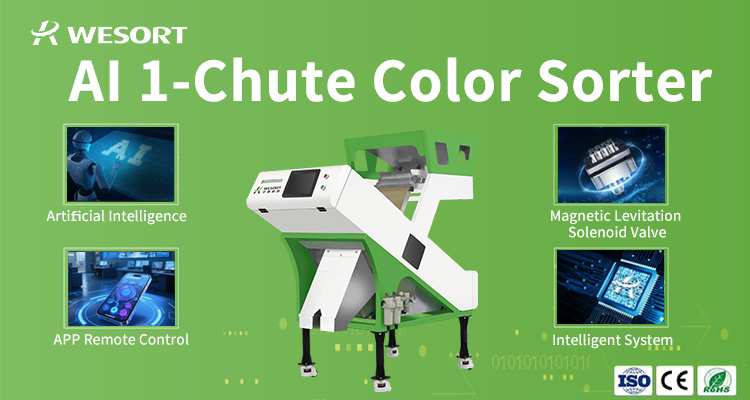
In modern agriculture, food processing, and recycling, quality control plays a vital role. This is where an optical sorter comes in. Many buyers often ask: What is an optical sorter? What does it do? How much does it cost? And how is WESORT optical...
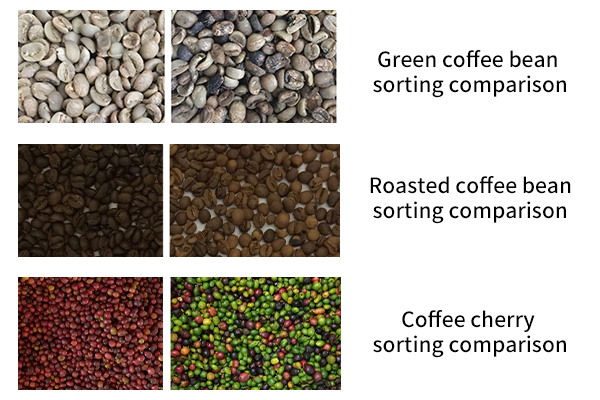
In the coffee industry, the quality of the final cup often depends on the smallest details during processing. One crucial step is removing defective beans, foreign materials, and color inconsistencies. This is where a coffee bean color sorter plays...

Coffee processing is a complex and meticulous task that involves several stages to transform raw coffee cherries into the high-quality beans we enjoy in our morning brew. One crucial step in this process is the sorting of coffee beans based on thei...

In the world of walnut processing, even the smallest imperfection can significantly impact product quality, market price, and brand reputation. Mold, insect damage, broken pieces, or inconsistent color are common defects that reduce the value of wa...
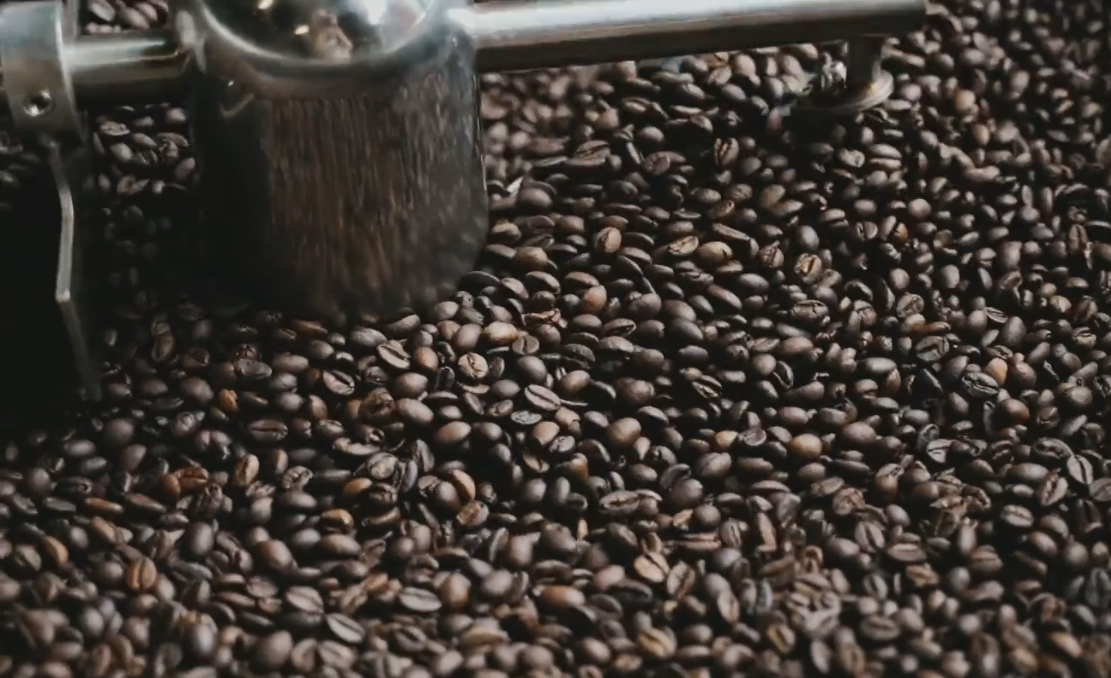
From green bean exporters to specialty coffee roasters, every producer faces the same challenge: how to remove defects efficiently while protecting valuable beans. Problems such as mold, fermentation damage, insect bites, black beans, broken beans,...
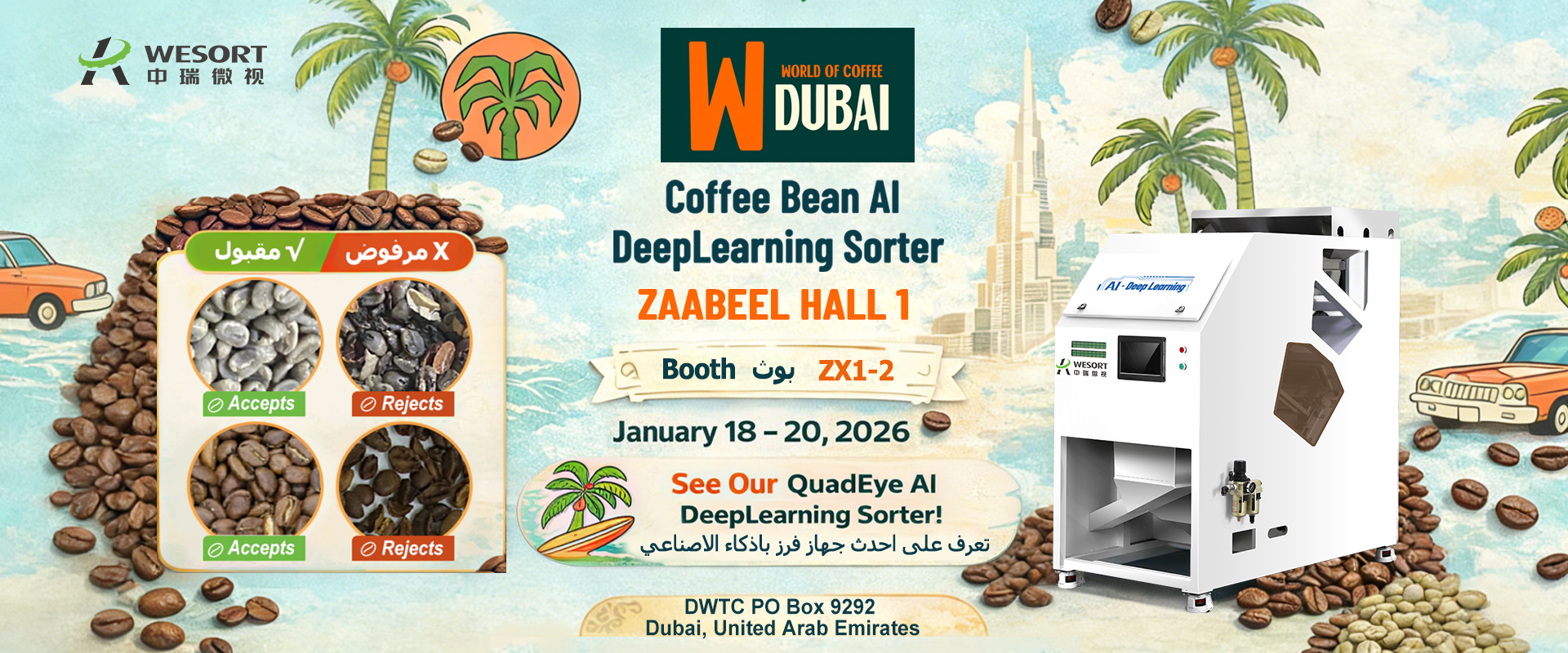
To meet the growing demand for premium and specialty coffee, sorting accuracy must go beyond traditional color-based systems. The QuadEye 360 AI Coffee Bean Sorter, developed by WESORT, represents the next generation of intelligent coffee bean so...

Dear friend, If you are attending World of Coffee Dubai 2026. we would like to invite you to visit WESORT. We will showcase our QuadEye 360 AI Coffee Bean Sorter, featuring 360° four-side inspection, AI deep learning models, near-zero breakage,...

Meta Description: Looking for the top hazelnut sorting machine manufacturer? WESORT offers advanced hazelnut color sorters with AI deep learning to efficiently remove defects, pests, and foreign materials. Boost your hazelnut processing efficienc...
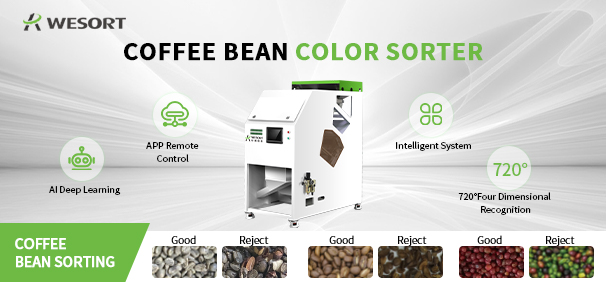
With the growing popularity of specialty coffee, the purity of coffee beans determines the aroma and taste of a cup of coffee. Achieving 99.9% purity requires high-performance coffee bean sorting equipment. Among Chinese coffee bean color sorter ma...
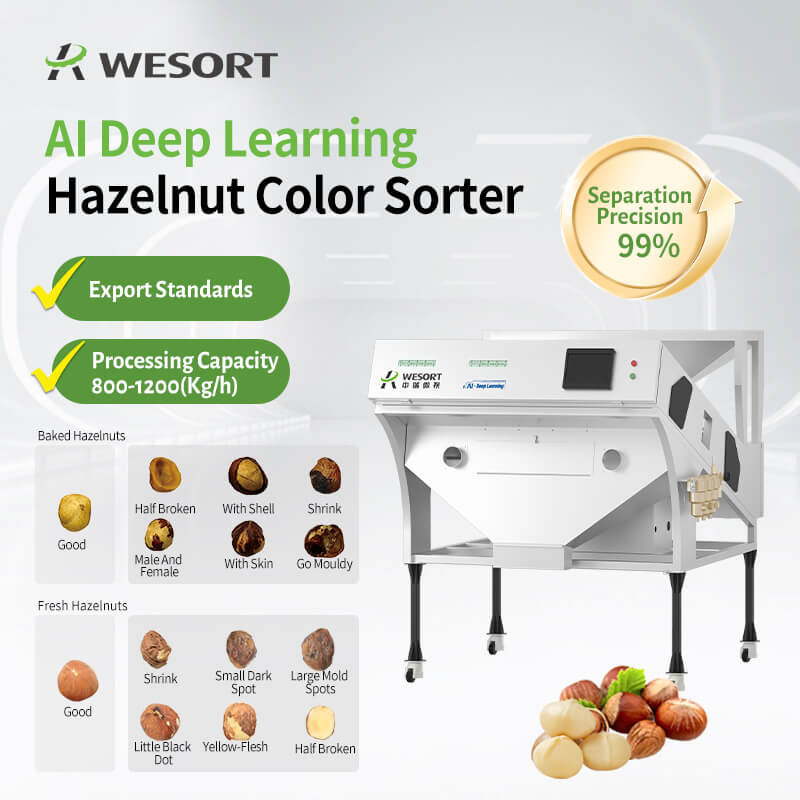
What's the most vexing issue in the hazelnut industry chain? It's not yield, but quality. Defects like mold, wrinkled skin, and foreign matter not only reduce product value but can also put export orders at risk. The solution isn't to increase the ...
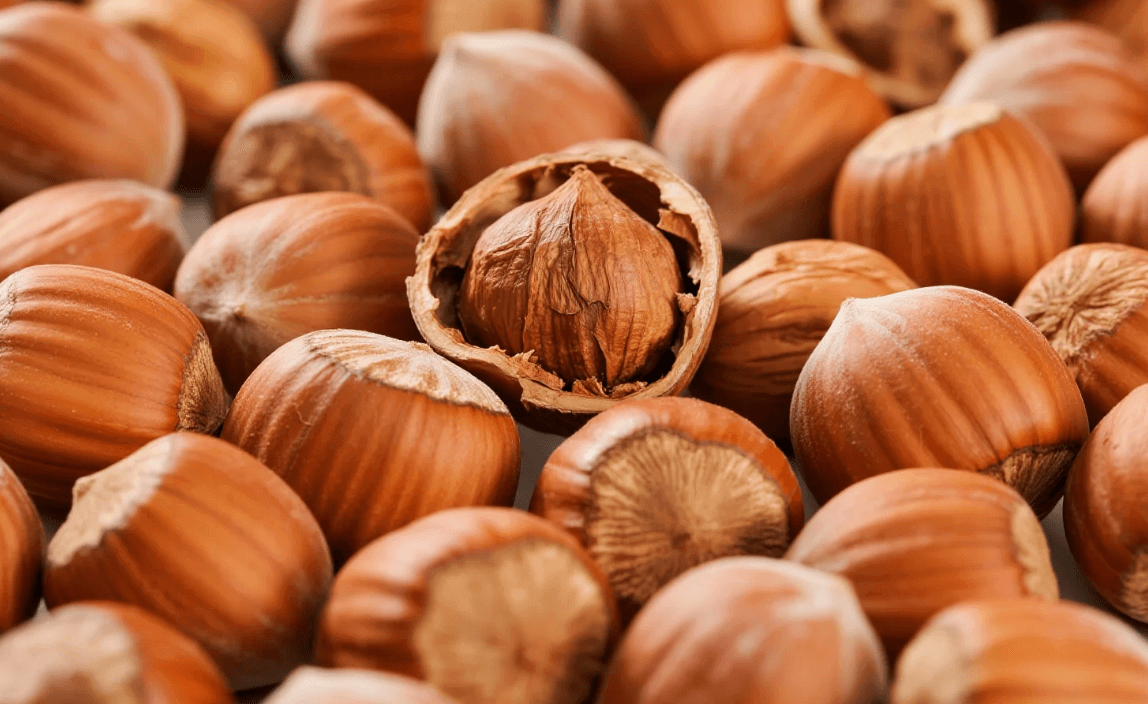
Every hazelnut tells a story—about the soil it grew in, the care during harvest, and the precision of its processing. Yet between farm and final product, hidden defects like mold, insect damage, and discoloration can turn premium hazelnuts into cos...

Plastic waste recycling is one of the most pressing challenges in today’s sustainability-driven world. Proper plastic sorting ensures high-quality recycled materials, reduces environmental impact, and improves profitability for recycling businesses...
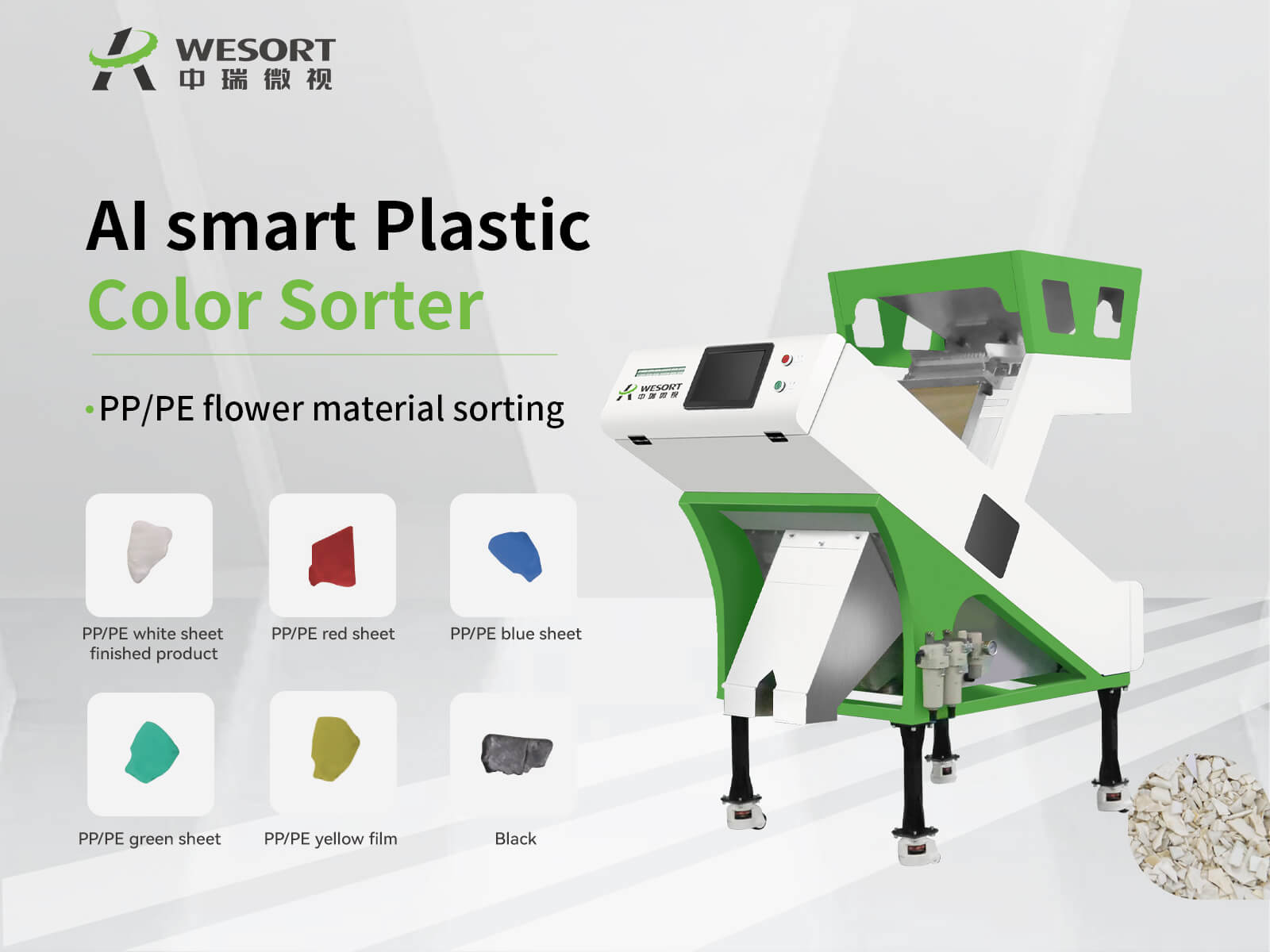
In the plastic recycling industry, purity and efficiency directly determine profitability. As global demand for recycled plastics increases, manufacturers need advanced solutions to separate impurities, improve yield, and ensure consistent product ...
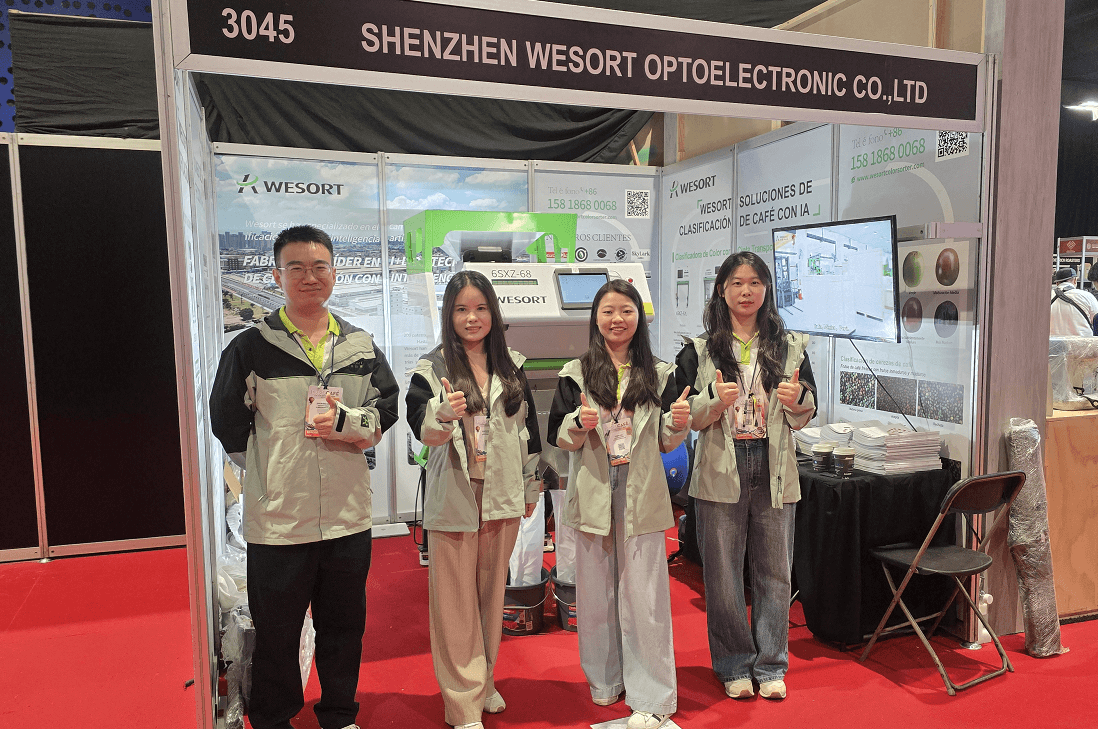
In Mexico, coffee is more than just a drink — it’s a culture, a tradition, and a vital industry. Yet, challenges like impurities, pest damage, and uneven coloration often diminish the value of even the most carefully cultivated beans. At EXPO CAFÉ...
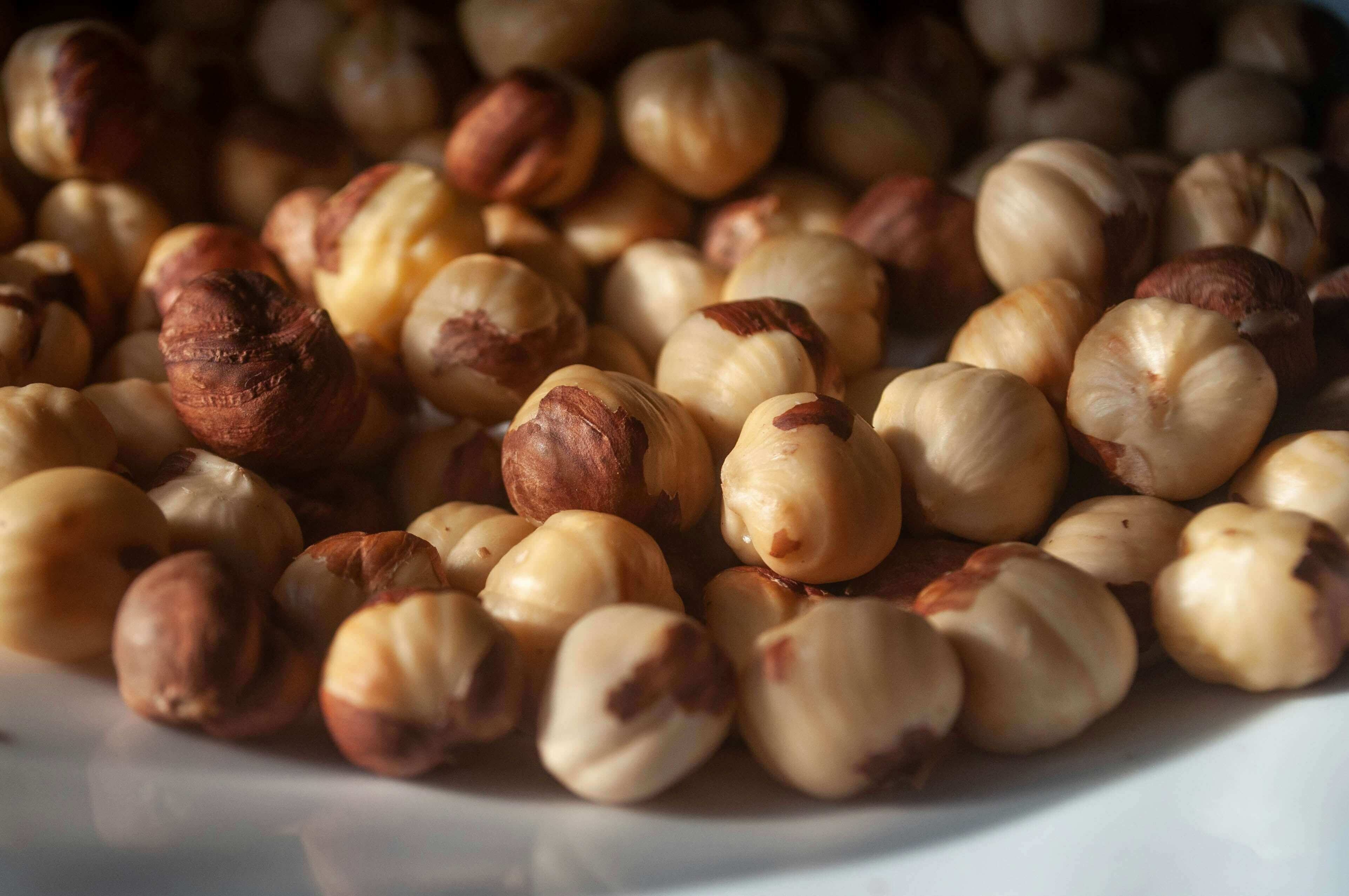
The global demand for hazelnuts continues to rise, driven by the growth of confectionery, bakery, and healthy snack markets. As consumption increases, so does the importance of quality control. Hazelnut processors face mounting pressure to deliver ...
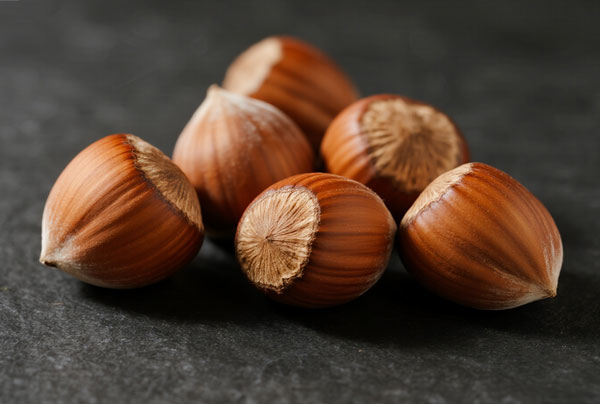
Hazelnuts are widely used in confectionery, bakery, and snacks, where product quality directly affects market value. However, hazelnut processing often faces serious challenges, such as pest infestation, seasonal labor shortages, and inconsistent m...
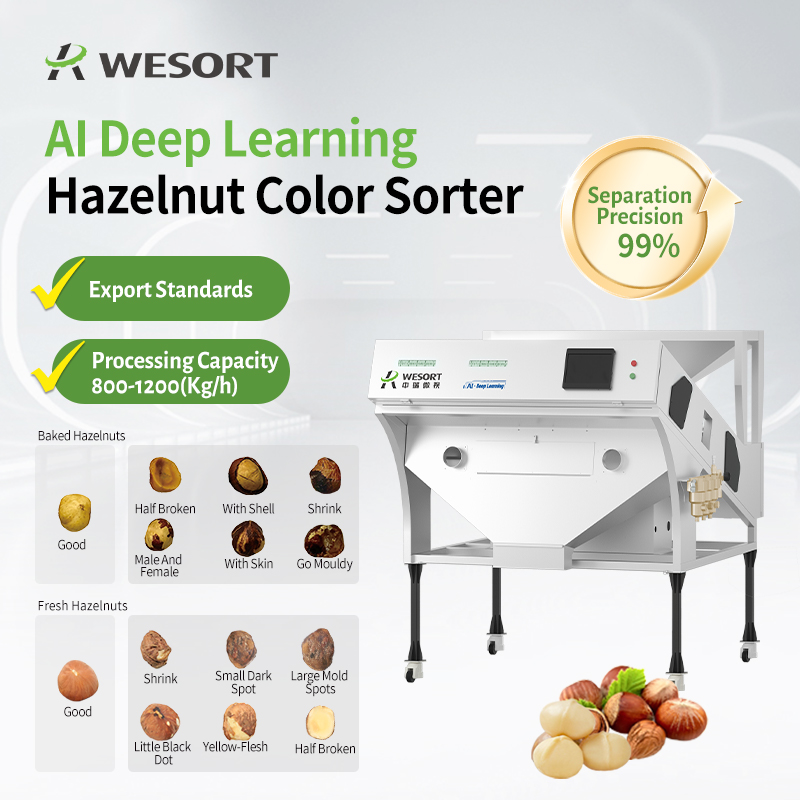
Hazelnut is the nut of the hazel and therefore includes any of the nuts deriving from species of the genus Corylus, especially the nuts of the species Corylus avellana. It is also known as cobnut or filbert nut according to species. A cob is roughl...
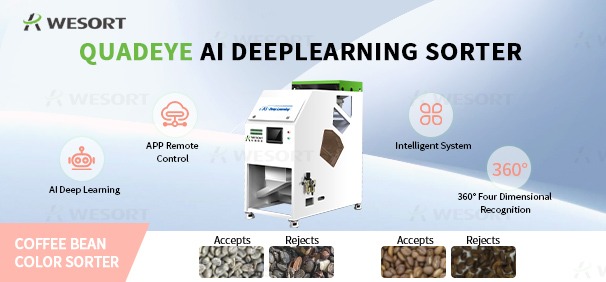
When you enjoy a smooth cup of coffee, you may not realize how much work goes into ensuring its purity and flavor. From harvest to cup, every step matters—and one of the most critical yet often overlooked stages is coffee bean sorting. Common Cof...
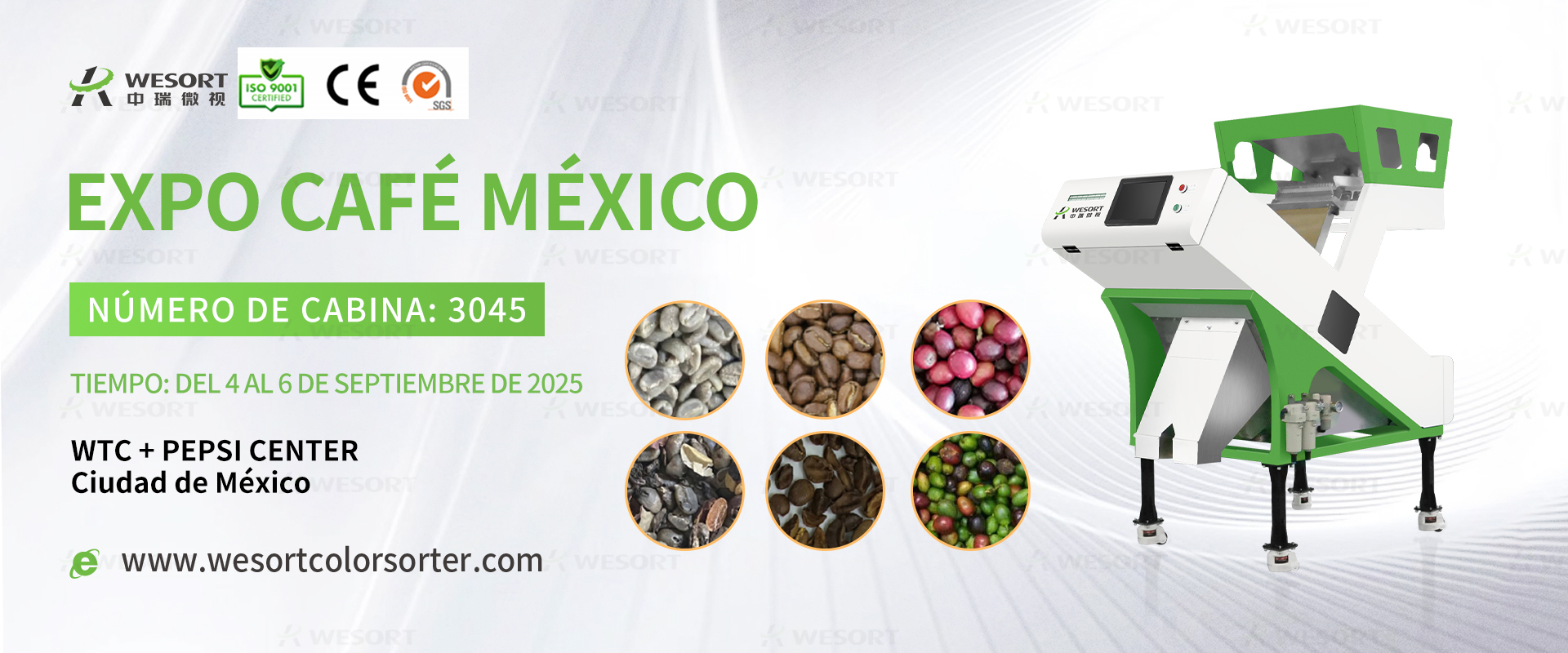
Dear Coffee Industry Partners, The Mexican Coffee Shop Expo 2025 is just around the corner—and WESORT , a leader in intelligent sorting technology, will be there to showcase our core solution for coffee processors: Coffee Bean Color Sorters. Mark...
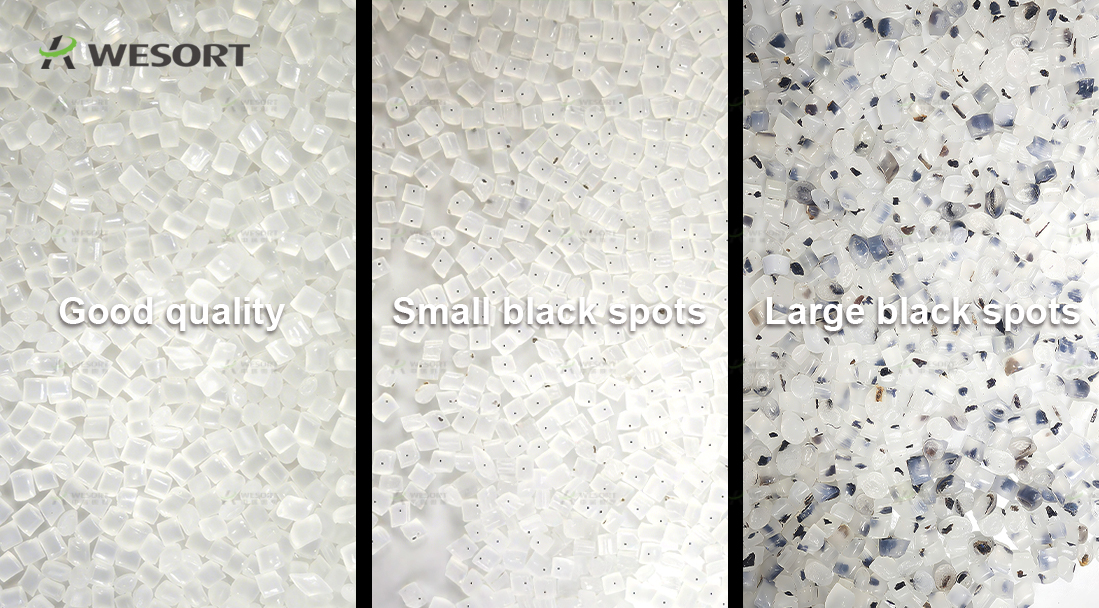
In the plastic pellet production process, color purity often directly determines the product's selling price and market competitiveness. Especially for transparent, white, or light-colored plastic pellets, even tiny black specks can affect the appe...

In modern agriculture, food processing, and recycling, quality control plays a vital role. This is where an optical sorter comes in. Many buyers often ask: What is an optical sorter? What does it do? How much does it cost? And how is WESORT optical...

In the coffee industry, the quality of the final cup often depends on the smallest details during processing. One crucial step is removing defective beans, foreign materials, and color inconsistencies. This is where a coffee bean color sorter plays...

Coffee processing is a complex and meticulous task that involves several stages to transform raw coffee cherries into the high-quality beans we enjoy in our morning brew. One crucial step in this process is the sorting of coffee beans based on thei...

In the world of walnut processing, even the smallest imperfection can significantly impact product quality, market price, and brand reputation. Mold, insect damage, broken pieces, or inconsistent color are common defects that reduce the value of wa...

From green bean exporters to specialty coffee roasters, every producer faces the same challenge: how to remove defects efficiently while protecting valuable beans. Problems such as mold, fermentation damage, insect bites, black beans, broken beans,...

To meet the growing demand for premium and specialty coffee, sorting accuracy must go beyond traditional color-based systems. The QuadEye 360 AI Coffee Bean Sorter, developed by WESORT, represents the next generation of intelligent coffee bean so...

Dear friend, If you are attending World of Coffee Dubai 2026. we would like to invite you to visit WESORT. We will showcase our QuadEye 360 AI Coffee Bean Sorter, featuring 360° four-side inspection, AI deep learning models, near-zero breakage,...

Meta Description: Looking for the top hazelnut sorting machine manufacturer? WESORT offers advanced hazelnut color sorters with AI deep learning to efficiently remove defects, pests, and foreign materials. Boost your hazelnut processing efficienc...